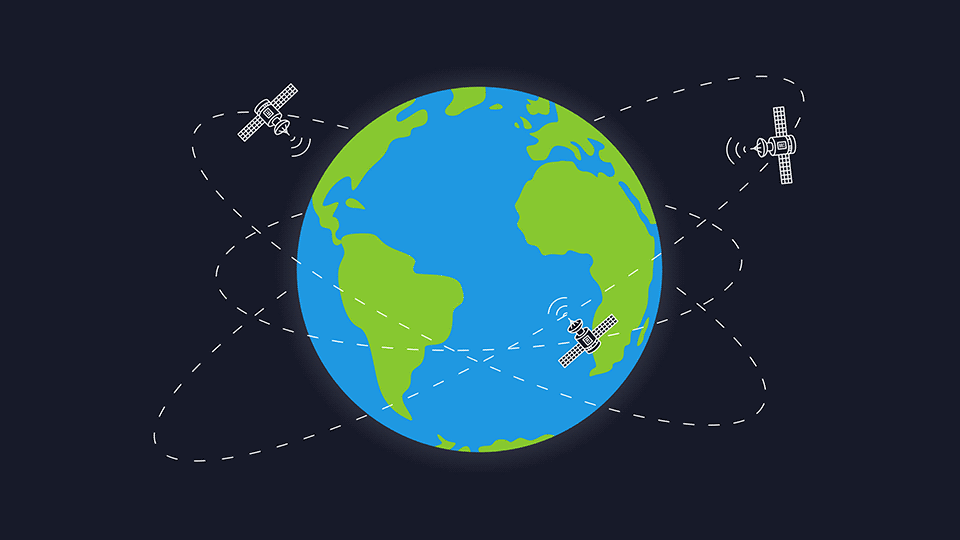Geotab data shows Florida preparing for hurricane
See data insights and a timelapse showing the impact of Hurricane Irma on commercial fleet vehicle activity in Florida and Puerto Rico.

By Mike Branch
Vice President, Data and Analytics at Geotab
Sep 7, 2017
Updated: Apr 19, 2023

The devastation left by Hurricane Harvey has truly spurred the state of Florida into action. While Harvey departs, Hurricane Irma, already dubbed the most powerful Hurricane in the Atlantic, has left a trail of damage in the Caribbean and poses one of the most severe meteorological threats to Florida in its history. To help present a clearer view of the scale and significance of this event, Geotab is sharing insights from vehicle data collected in the affected areas. These observations shed light on how Hurricane Irma is impacting the fleet industry in particular.
Commercial Fleet Activity in Florida Increases 360% Over the Past Week
Based on analysis of a dataset of over 33,000 connected vehicles in Florida, Geotab has observed an astounding 360% increase in commercial vehicle activity in the state from August 23 to September 6. This number represents the difference in sheer vehicle activity, not an influx in number of vehicles.
The significant increase in commercial fleet activity in Florida can likely be attributed to:
- businesses moving their people and vehicles to safer havens, and
- increased driving as fleets respond to greater public demand for basic goods and services.
Looking at a timelapse on the maps below, you can see an explosion of activity in Florida’s largest cities. Comparing vehicle data from August 23 to that of September 6, there is a massive increase in traffic flowing up the I-95 and I-75 interstate highways starting from the time of around 5-6 am ET in the morning on September 6.
In addition to increased vehicle activity in the major cities of Orlando, Tampa, and Miami, which typically have high volumes of commercial activity, Geotab has also measured increases in Jacksonville and Pensacola to the north, which tend to have much less traffic.
Wednesday, August 23, 2017 — Commercial Fleet Activity Before Irma
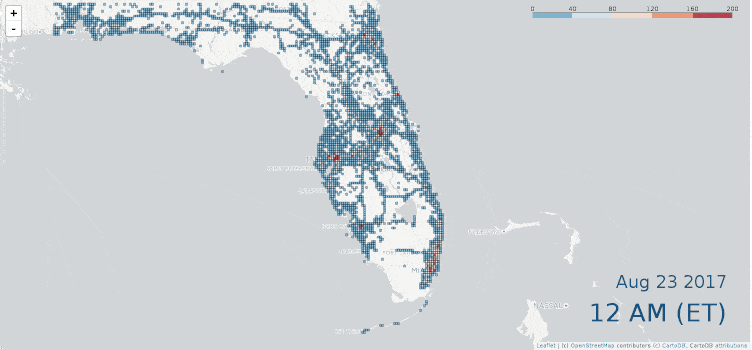
Wednesday, September 6, 2017 — Bracing for Irma
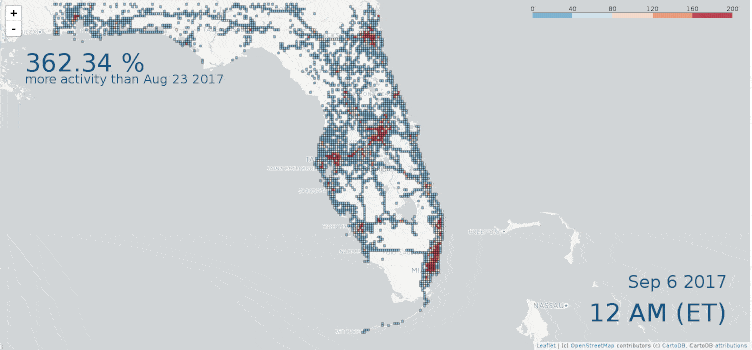
Spike in Fleet Activity at Florida Gas Stations Observed
Geotab data also confirms media reports of a rush to gas stations in Florida. On an average weekday in Florida, 36% of Geotab-connected fleet vehicles fill up their tanks at least once. Over the past few days, that percentage has risen to over 45% of active fleet vehicles, representing over 7,500 vehicles fueling up at the pumps. The spike in gas station activity can be attributed to the increased commercial activity referenced above.
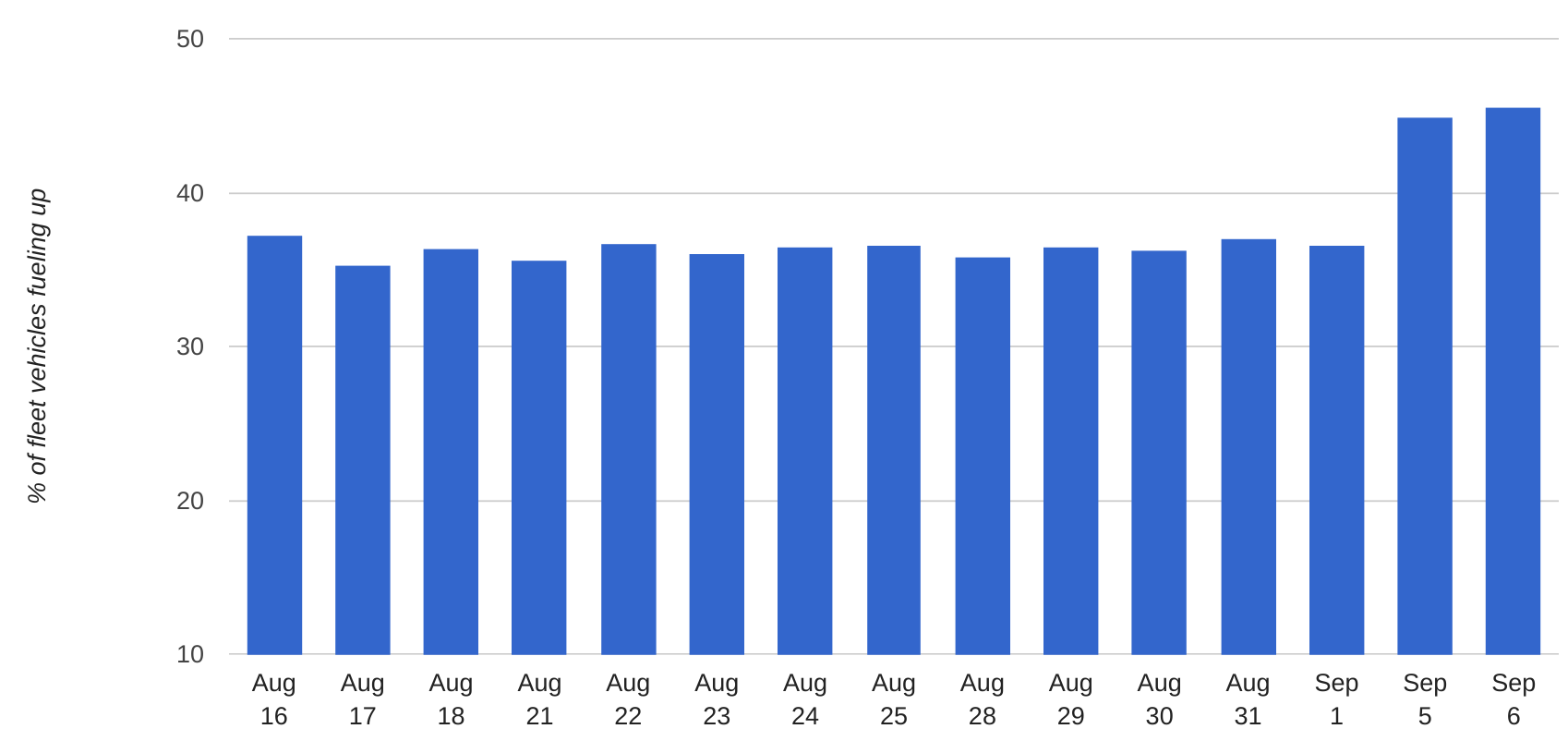
Puerto Rico Fleet Activity Significantly Impacted by Irma
To understand the impact that Hurricane Irma has already had, we looked at vehicle activity in areas in Irma’s path. In Puerto Rico, there was a fairly significant impact on commercial fleet activity.
With no direct evacuation route available on the island, we can see the devastating effects even in the days leading up to the arrival of Hurricane Irma.
Fleets in Puerto Rico are typically very active with an average utilization rate of 91% on the average weekday over the past month. On September 6, only 35% of all Geotab-connected vehicles were active and that number is dropping. As of 12:00 PM ET on September 7, only 27% of fleet vehicles were active on the road.
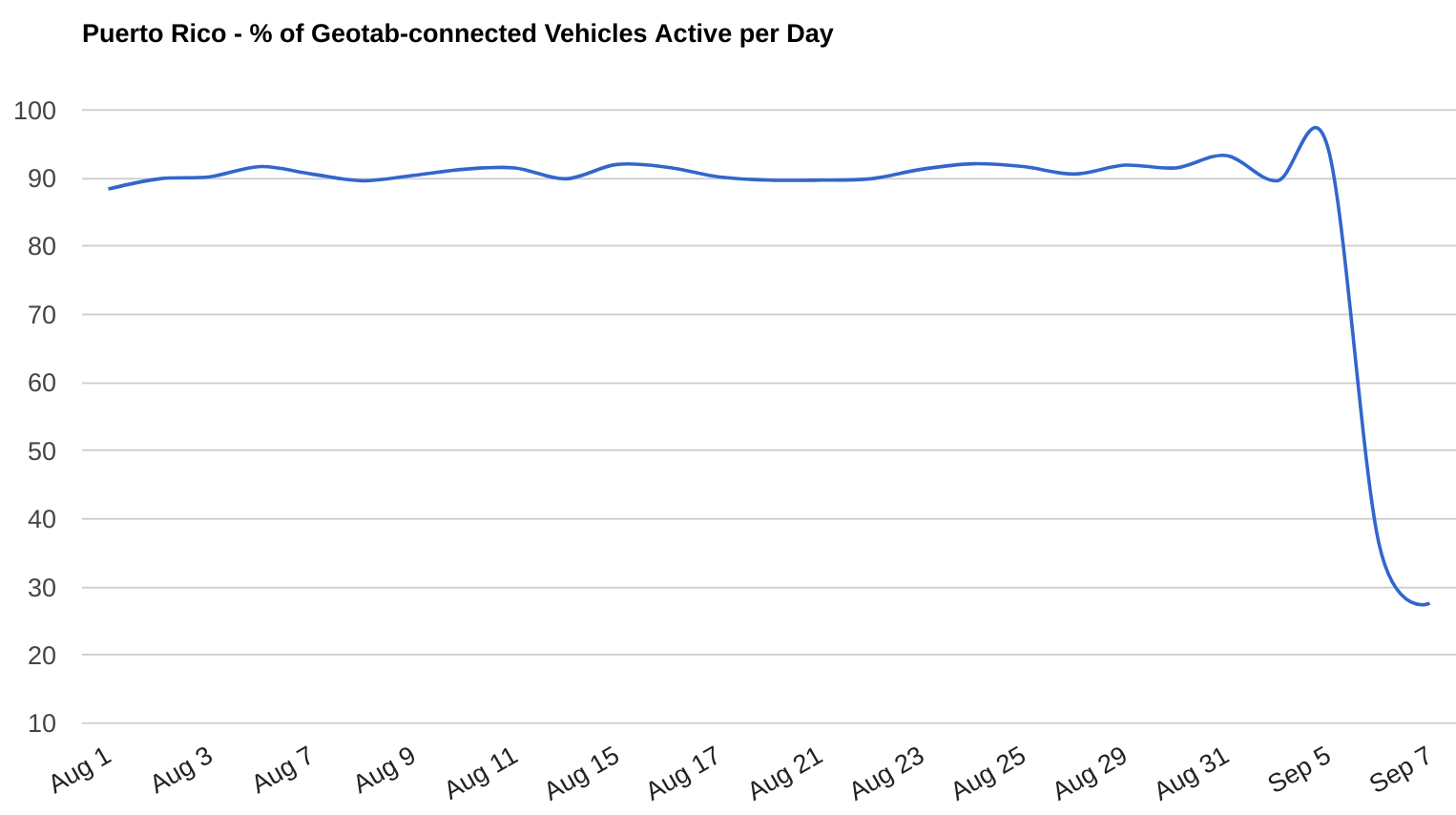
As seen in the chart below, there was a rebound to normal levels in Puerto Rico by September 8, when approximately 90% of Geotab-connected vehicles were showing active.
Almost two weeks after the initial analysis of commercial fleet activity in Puerto Rico, we saw another spike to 94% activity, as the island prepared for the arrival of Hurricane Maria. As Maria made landfall on Puerto Rico, we observed a much more serious decline in fleet activity than we had seen with Irma. Only 4% of Geotab-connected vehicles were active on September 19. With 100% of the island losing power, fleet activity most likely will take longer to return to normal.
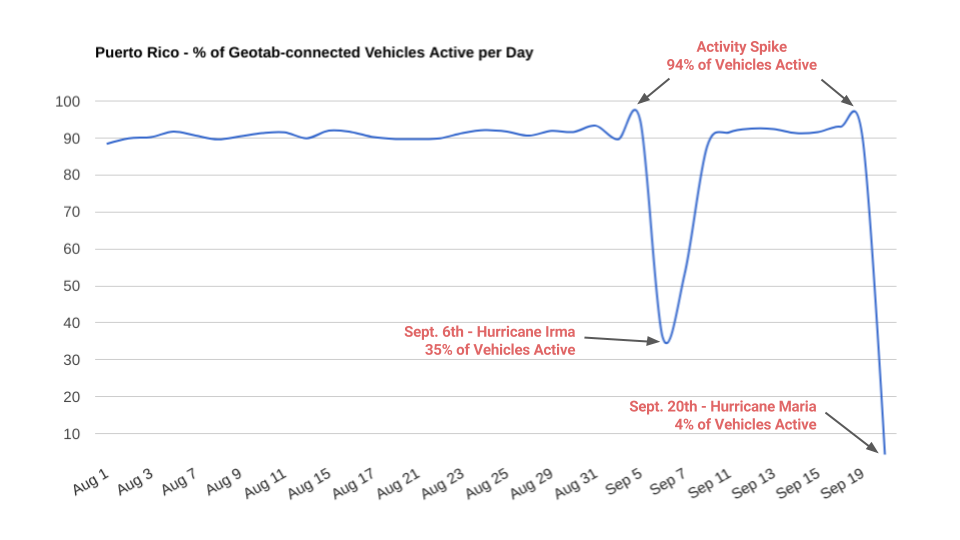
As in the case with Hurricane Harvey, Geotab will continue to monitor the effects on commercial vehicle activity and will provide updated information on Hurricane Irma’s impact on fleets in Florida.
Related:
Geotab Data Shows Impact of Hurricane Harvey on Driving and Commercial Fleet Activity
Geotab Hurricane Assistance for Fleets
Subscribe to get industry tips and insights

Mike Branch
Vice President, Data and Analytics at Geotab
As Geotab’s Vice President of Data and Analytics Mike Branch leads the development for solutions that enable insight from over 1.4 million connected vehicles and 30 billion telematics records that Geotab processes daily.
Table of Contents
Subscribe to get industry tips and insights
Related posts

.jpg)
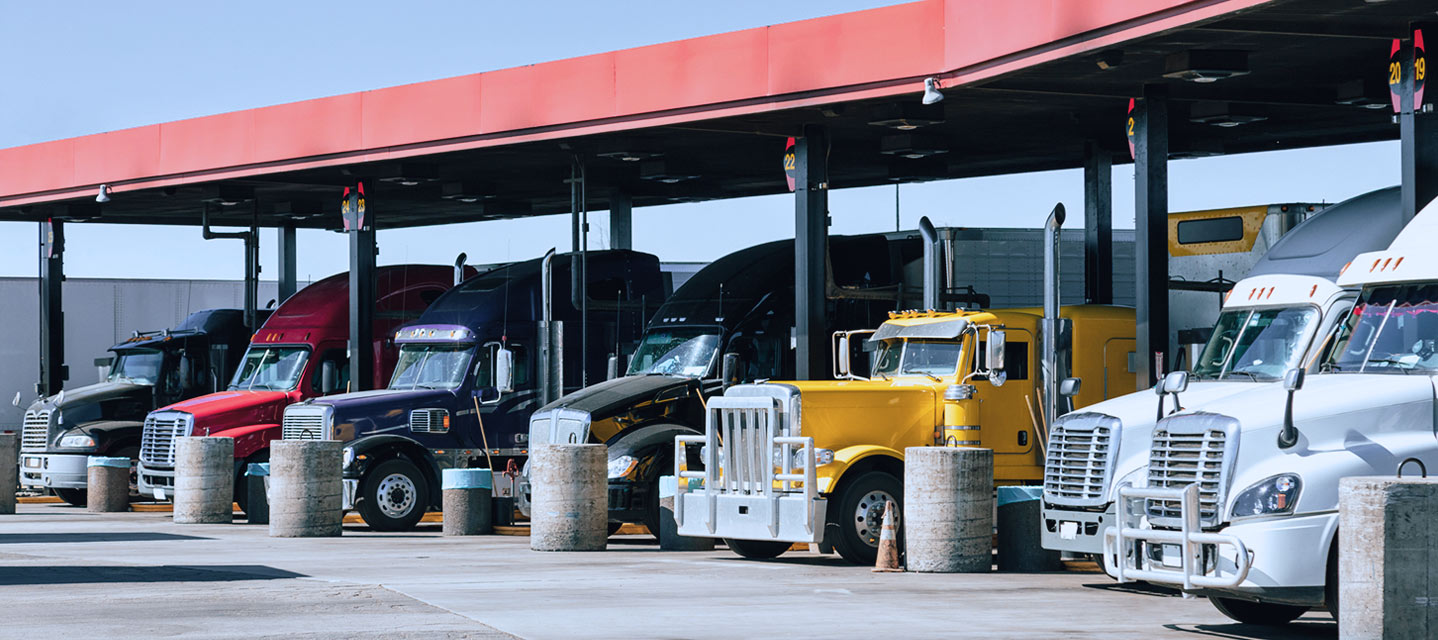
9 strategies to increase fleet fuel efficiency and lower fuel costs
July 8, 2025
4 minute read

Creating a fleet safety culture that’s built to last: Lessons from Missouri DOT and NYC
July 7, 2025
8 minute read

